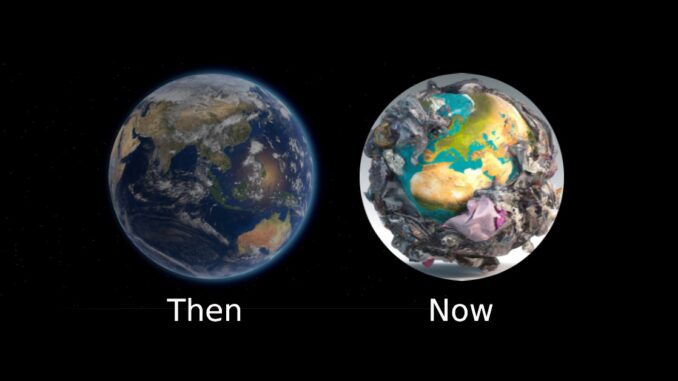
Our planet has undergone drastic changes in the past few decades, and unfortunately, not for the better. From being a pristine abode of nature, it has transformed into a landfill of waste generated by the humankind. The progress that we have made as a civilization has come at a cost, and it is high time that we acknowledge it.
The beauty of our earth was once unparalleled. Vast stretches of green forests, serene lakes, and majestic mountains were some of the features that made it stand out. It was a symbol of balance and harmony, with each element complementing the other. However, the increasing human population and industrialization have led to a significant shift in the landscape of our planet.
As industries grew, so did the demand for natural resouces, leading to rampant deforestation and mining. The rising population has led to the proliferation of urban areas, resulting in increased pollution and waste generation. Plastic waste, one of the most significant contributors to environmental degradation, has become ubiquitous, choking our water bodies and landfills.
The situation seems grim, but it is not entirely hopeless. With collective effort, we can reduce our impact on the environment and work towards restoring the planet’s natural beauty. Governments around the world are implementing policies to reduce waste generation and promote sustainable practices. Individuals can contribute by reducing their carbon footprint and being mindful of their consumption patterns.
In conclusion, the changes that our earth has undergone in the past few decades have been significant and concerning. However, it is not too late to reverse the damage and restore the planet’s natural beauty. It is our responsibility to do so, and we must take collective action towards this goal.